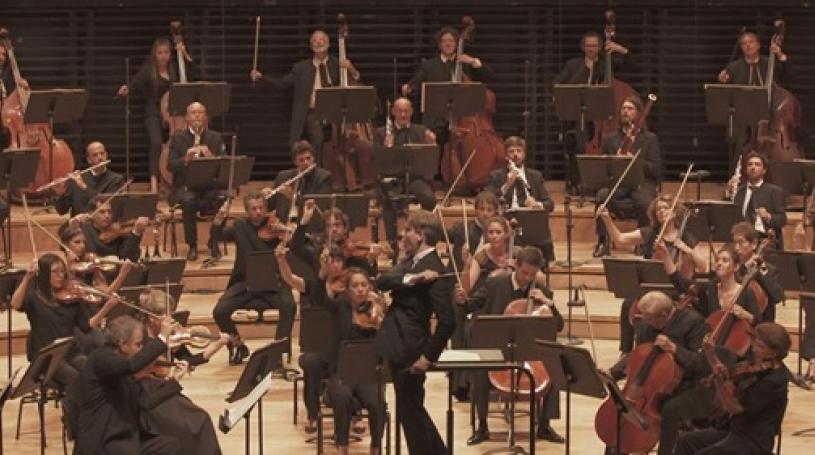Orchestras return to the stage with new social distancing measures in place

As entertainment venues slowly reopen, the orchestra makes its return in Paris and across most of Europe with new distancing measures in place both for on-stage and in seating areas.
The performing arts have taken a significant hit during the coronavirus pandemic, and musicians whose livelihood is playing in front of audiences have faced a particularly difficult path. Physical distancing has kept musicians from rehearsing together, while large venues have been forced to shutter their doors due to new capacity and ventilation guidelines. Playing wind instruments and singing, in particular, are deemed to be high risk transmitters of the virus by some assessments.
Livestreaming on digital platforms increased during lockdown, used by many musical and performing arts groups to both stay connected to their audiences and bring in revenue amid canceled seasons. Berlin Philharmonic offered free access to archival performances for a limited time in March. Similarly, the Paris Philharmonic has a number of free live performances and interviews on its website.
As venues reopen, the new seating changes are in stark contrast to traditional orchestra layouts. "The idea has been that the musicians sit very close together so there is the maximum amount of contact, same for the audience to have this sort of intimate feeling," said Klaus Mäkelä, music director at the Orchestre de Paris, in a video for CNN Style.
This intimacy now has had to be rethought. For now at the Paris Philharmonic, musicians are kept over six feet apart and fewer musicians are permitted onstage than in pre-pandemic times. Laurent Bayle, director of the Paris Philharmonic, said in the video, "Normally you could imagine some concerts with... 50 or 60 musicians plus a choir onstage." Audience numbers have also drastically reduced with spectators limited to half a hall's capacity.
Despite the circumstances, Mäkelä is optimistic about the return of the orchestra to the stage, highlighting that because of the new configurations, performers will have to listen to one another more than they did before. And even with the new measures in place, "We can play with quite a big orchestra which makes us so very happy," he said.
